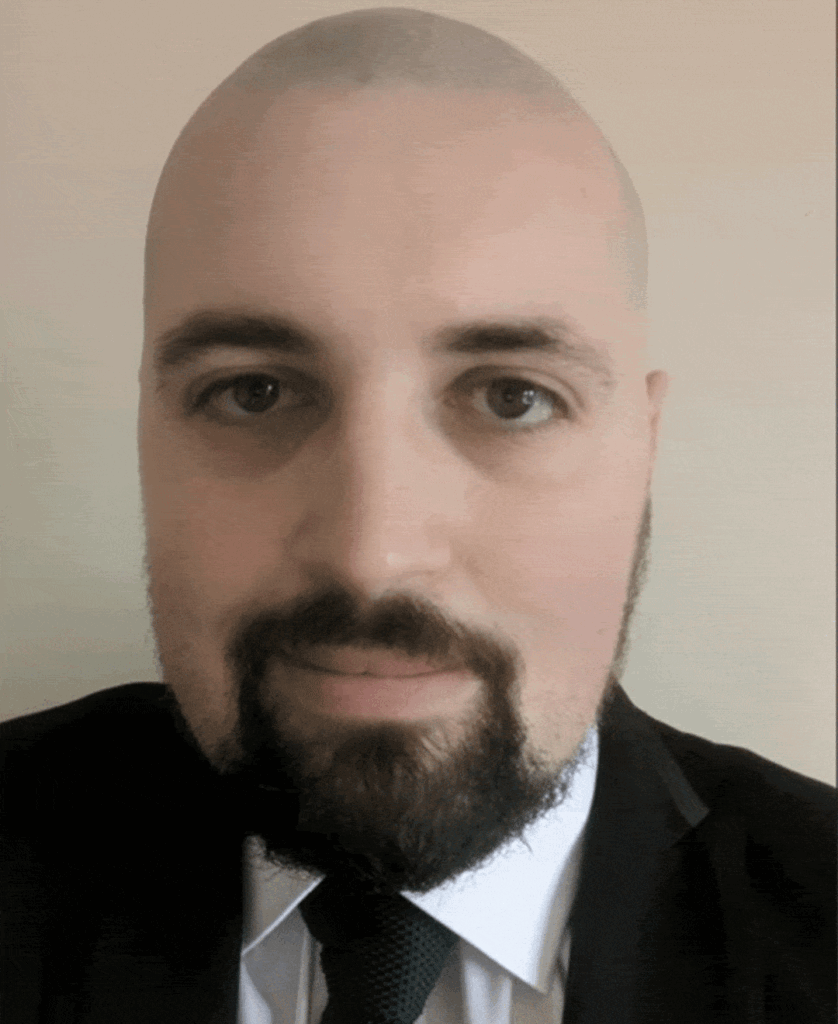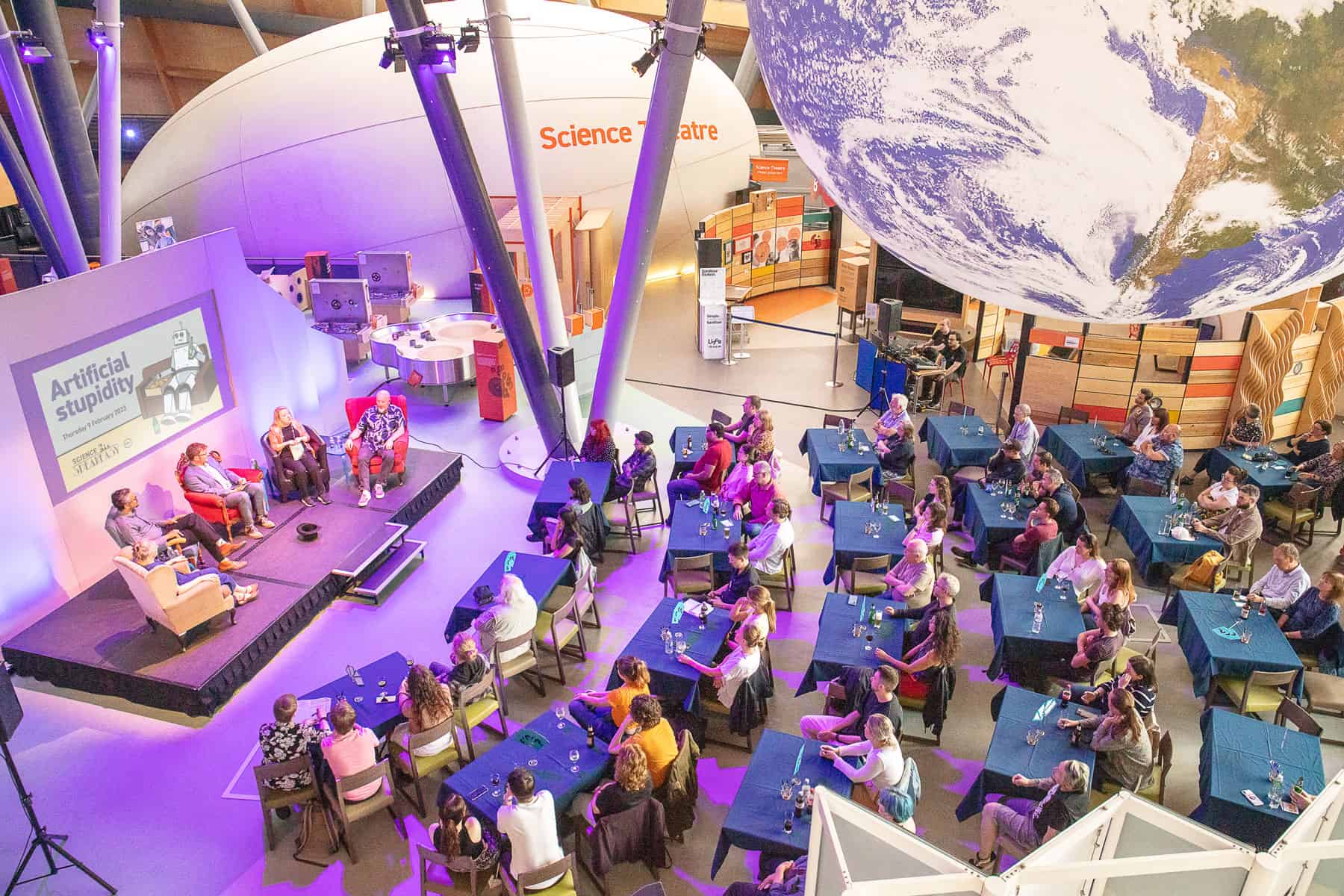
In the lead up to our Speakeasy on Artificial Intelligence next month, we’ve been speaking with panellist Luke Chambers a PhD researcher at Northumbria University who is researching how AI is used as criminal evidence at trial.
Luke Chambers is a PhD researcher in Artificial Intelligence Law at Northumbria University, an institute Life is proud to partner with on a wide range of activities and events. Luke is researching how artificial intelligence is used as criminal evidence at trial – with particular focus on how we uncover (and hopefully prevent) AI mistakes. His wider research includes how AI and the law interact. He has a Masters degree in Space & AI Law, and a BSc (Hons) in Computer Science with Artificial Intelligence.
Luke is no stranger to Life. He worked as an ice rink host when he was a teenager before becoming a science centre host. It was during this time that Luke developed a passion for STEM (science, technology, engineering and technology). The enthusiastic staff at the science centre had a huge impact on Luke, with one science explainer telling him that “A scientist isn’t a qualification, it’s a mindset” – something which he still remembers to this day, and he says gave him the confidence to apply to university.

Luke said: “It’s really exciting to be returning to Life to talk about a topic I feel extremely passionate about, a passion which was kick-started at the science centre when I worked there. I used to look up in awe at the visiting experts but now I am one! I also know just how much work goes into hosting events like this. Instead of looking at all of the seats and tables when I arrive and being nervous about taking the stage, I’ll be looking and thinking how thankful I am that it’s not me putting these away this time!
“I didn’t think people like me – from a lower socioeconomic background – could go to university, but Life and their staff completely changed my outlook and encouraged me to apply. I went to university to study Computer Science with Artificial Intelligence, where I learned to build AI systems and algorithms as a scientist. But whilst studying this, I actually fell in love with learning about the policies surrounding AI use in society. I was also very worried about some uses of AI in society and would often think, surely this can’t be legal!
“After I graduated, I discovered that Northumbria University’s Law School accepted interdisciplinary students, and that they were one of the few places in the country to include cutting-edge legal topics such as space law and AI law and I couldn’t resist applying. I got in, loved the course, and was accepted onto a PhD programme once I graduated. Going from STEM to Law was a big challenge, but having that dual specialism is very useful for my work.
“My PhD research looks at how AI is used as evidence against people in trials, as well as how the police use AI to collect evidence. A lot of my focus is on how we know how much to trust AI when someone’s freedom is on the line.
“There are very high stakes, and we can’t afford AI mistakes. As both a computer scientist and a legal scholar, it’s been very interesting diving into this and discovering that in many cases AI is nowhere near as reliable or ‘honest’ as we assume. Often, people over-trust AI. There are some types of AI that are proving very reliable, but others that seem reliable until you take a much closer look and see something is actually going wrong underneath.
“AI is fast moving and we see it everywhere in our day-to-day lives. The changes brought about by AI creates many interesting debates and discussions around how we insure self-driving cars, whether we should make AI legal persons or not, who is to blame when AI goes wrong and whether AI should own the art or inventions it creates. I’m looking forward to debating these topics at Life and hoping someone in the audience will find their spark for STEM, just like I did when I was a science centre host years ago.”
